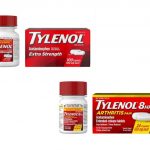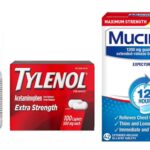Tylenol Side Effects In The Elderly

Headache in older adults often represents a different diagnosis than in younger persons, and often with more serious consequences. Although primary headache is common in older adults, headaches secondary to underlying or comorbid conditions become more prevalent with age. The use of multiple chronic medications in the elderly also increases the risk for pharmacy-induced headaches.
Another major concern for the elderly is fever and pain. Three major sources of physical pain for seniors are joint pain, muscle strains, and trauma from falls and broken bones. Fever, headaches, and pains are often treated with common medications.
As you age, even though you may have taken a medication for decades, your body may react differently to it later in life. One reason for this is that your metabolism has slowed down. Some medicines need to be processed by your liver to benefit your health; slower digestion and liver function mean it may take longer for a drug to get into your bloodstream. Later, remnants of the medicine need to be eliminated from your body by the liver and kidneys. Slowdowns at this stage mean it may take longer for a drug to leave your body, so its effect lasts longer.
Studies also show that certain medications are less safe for older people, and it is important that you work with your provider or pharmacist to use medications that are safe for your age. The American Geriatrics Society’s Beers Criteria lists medications that may not be safe in older people and can be used as a tool when you talk with your provider or pharmacist about using safe medications.
What is Tylenol?
Tylenol (acetaminophen) is the most popular over-the-counter (OTC) pain relief medication used in the U.S. and around the world. Acetaminophen is the active ingredient in Tylenol and the generic name of the drug that is commonly found in other medications.
Tylenol belongs to a class of drugs called analgesics and antipyretic agents. An analgesic relieves pain. An antipyretic reduces fevers. For more than 50 years, doctors have recommended Tylenol for both uses.
Unlike other analgesics like aspirin and ibuprofen (Advil, Motrin), Tylenol does not treat inflammation. It is most effective for minor aches and pains but can be used safely for long-term chronic pain such as arthritis. In fact, the American College of Rheumatology recommends Tylenol to treat arthritis, and it is especially useful in types of arthritis that are not accompanied by inflammation, like osteoarthritis.
How is Tylenol taken?
The dose of this medication will be different depending on your age and what formulation you’re using. Follow your provider’s instructions or the directions on the medication label. The following information includes only the average doses of this medication.
Adults: The typical dose is 650 mg either by mouth or inserted into the rectum every 4 to 6 hours as needed. The maximum daily dose will differ slightly depending on what formulation (e.g., regular strength, extra strength, extended-release, etc.) you’re taking, but generally, you should not take more than 3,000 mg to 4,000 mg per day. Check with your provider about what your maximum dose of acetaminophen (Tylenol) should be.
Tylenol products available without a prescription should not be used for longer than 5 days in a row for pain or 3 days in a row for fever. If you consume 3 or more alcoholic drinks in a day, do not take acetaminophen products, as your risk of liver damage is increased.
Many things can affect the dose of Tylenol that a person needs, such as body weight, other medical conditions, and other medications. If your doctor has recommended a dose different from the ones listed here, do not change the way that you are taking the medication without talking to your doctor. Always take acetaminophen exactly as prescribed by your doctor.
Tylenol is one of the safest over-the-counter painkillers for the elderly. However, older adults must NOT take more than 3000 mg of acetaminophen in one day. In high doses, acetaminophen can cause serious or fatal liver damage.
Tylenol Side Effects In The Elderly
According to a study published in the Journal of the American Geriatrics Society, Tylenol is a safe first choice in pain management for most older adults but should be considered with a bit more caution for older adults with diabetes.
Some Tylenol products such as Tylenol PM can cause or worsen the chemical imbalance common in memory problems and cause significant confusion and a risk of falls among the elderly.
In addition, older people may have more Tylenol in their bodies over a longer period. And this may increase their risk for side effects, such as
- difficulty breathing or swallowing
- hives
- hoarseness
- itching
- rash
- red, peeling, or blistering skin
- swelling of the face, throat, tongue, lips, eyes, hands, feet, ankles, or lower legs
Tylenol may cause other side effects. Call your doctor if you have any unusual problems while you are taking this medication.
If you experience a serious side effect, you or your doctor may send a report to the Food and Drug Administration’s (FDA) MedWatch Adverse Event Reporting program online (http://www.fda.gov/Safety/MedWatch) or by phone (1-800-332-1088).
What drugs interact with Tylenol?
Effects of Other Substances on Acetaminophen
Substances that induce or regulate hepatic cytochrome enzyme CYP2E1 may alter the metabolism of acetaminophen and increase its hepatotoxic potential. The clinical consequences of these effects have not been established. Effects of ethanol are complex, because excessive alcohol usage can induce hepatic cytochromes, but ethanol also acts as a competitive inhibitor of the metabolism of acetaminophen.
Anticoagulants
Chronic oral acetaminophen use at a dose of 4,000 mg/day has been shown to cause an increase in international normalized ratio (INR) in some patients who have been stabilized on sodium warfarin as an anticoagulant. As no studies have been performed evaluating the short-term use of acetaminophen in patients on oral anticoagulants, more frequent assessment of INR may be appropriate in such circumstances..





